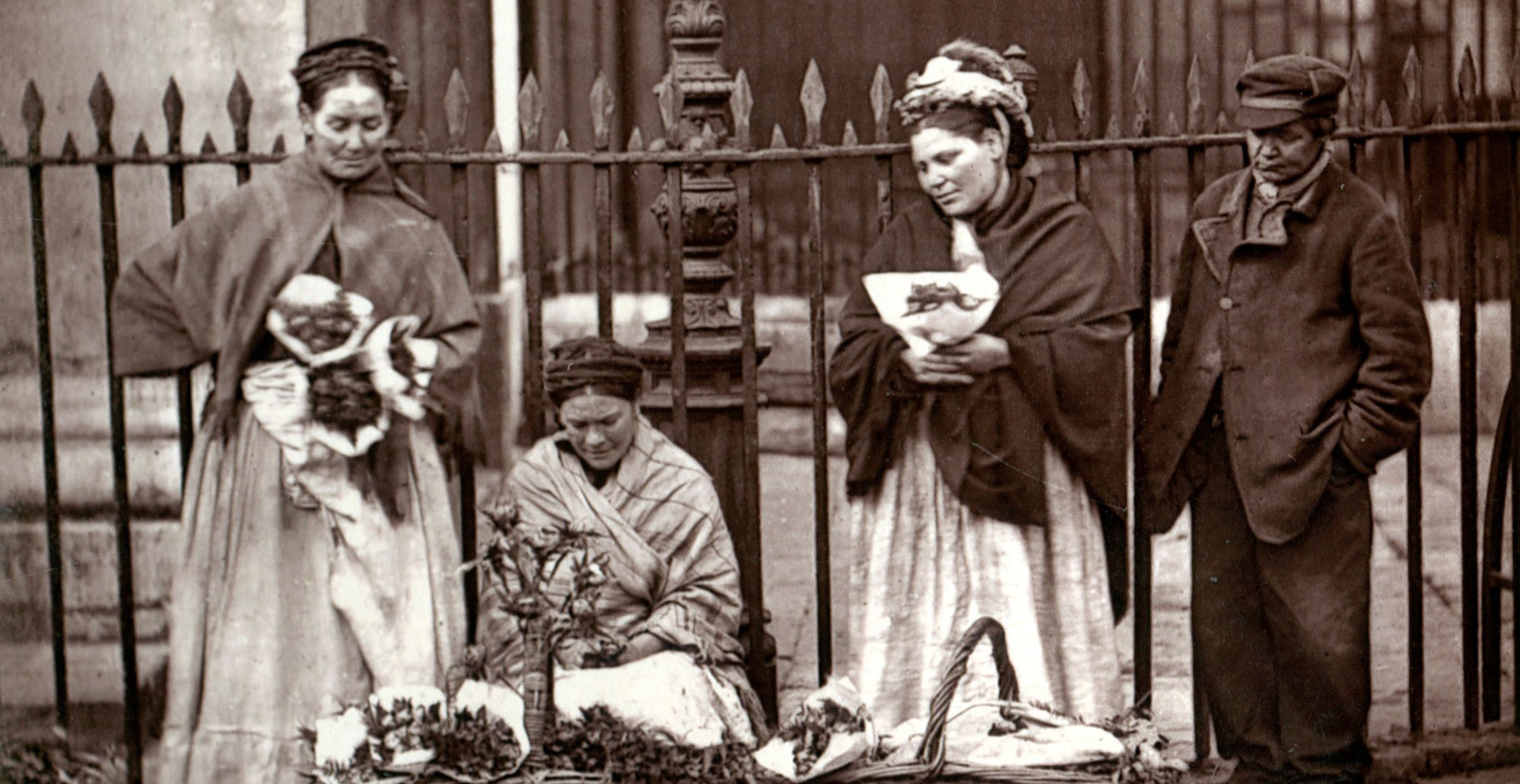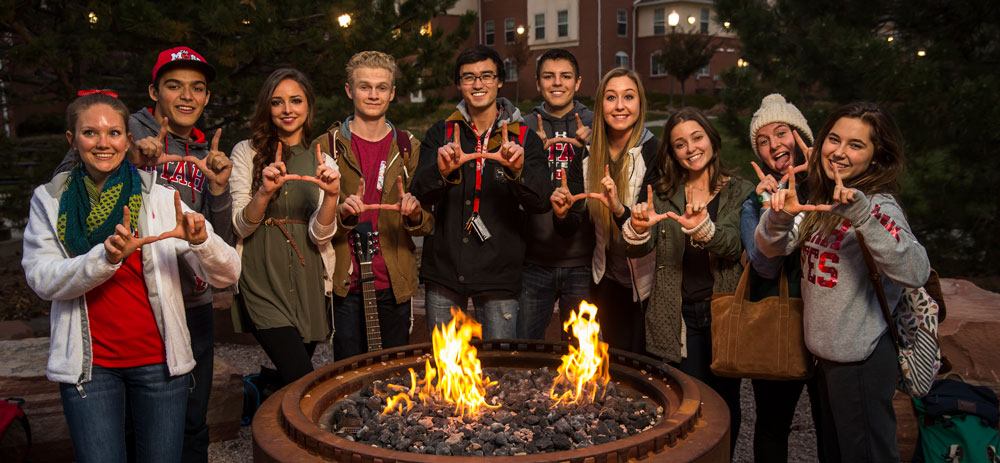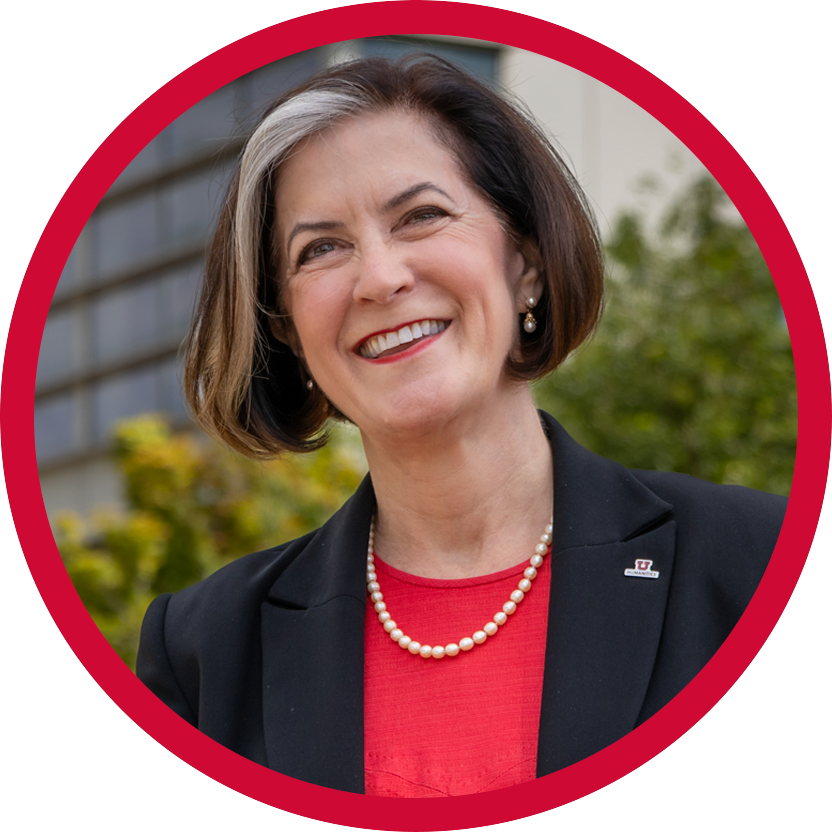A Conversation with
the New Dean
Jana Cunningham & Hollis Robbins
Dean of the College of Humanities
In December 2021, the University of Utah announced that Hollis Robbins would serve as the next dean of the College of Humanities. A noted scholar of 19th-century American and African American literature, film, and poetry, Robbins previously served as dean of the School of Arts and Humanities at Sonoma State University. Prior to that appointment, she was chair of the Department of Humanities at the Peabody Institute at Johns Hopkins University and also served as the director of Hopkins’ Center for Africana Studies.
Robbins holds a doctorate in English from Princeton University, a master’s degree in English from the University of Colorado, Boulder, a Master of Public Policy from Harvard University, and a bachelor’s degree from Johns Hopkins University. She began her tenure as dean of the U’s College of Humanities on July 1, 2022.
Q&A
WHAT DRAWS YOU TO THE HUMANITIES?
For me, the humanities—the study of the nature of human existence—were the questions I asked before I knew there was an academic category called “the humanities.” Who are we as humans and have we always been like this?
As a matter of organized inquiry in fields such as philosophy, literature, and history, questions about the nature of humanity are central. In graduate school and as a professor, I focused on the 19th century, an era that saw breakthroughs in scientific and technical knowledge. In this era, fundamental questions about the category of “human” became more urgent. What exactly is a human being? Did humans evolve from other species or were they made by God? What makes humans different from other animals? Do they think, communicate, pray, change their minds, change and act out of spite as we humans do? Which human beings get to count as citizens? How are we the same and how are we different? Are there humans on other planets? These are all humanities questions.
WHAT DO YOU SEE AS THE FUNDAMENTAL LESSONS OF THE HUMANITIES?
Students always love the question, “In what ways are human beings all the same and in what ways are we very different from one another?” We might approach languages, for example, as all designed for similar purposes: to communicate with one another and bind a group together. And we have scholars who focus on how languages are different from one another and what these differences mean for the development of a society. What is universal and what is local? There is “history” and there are “histories.” The category of “literature” includes an infinite variety of ways that human beings have imagined and artfully crafted fictional ideas, while individual works of literature battle, imitate, and signify upon one another differently.

WHAT IS THE ROLE OF THE HUMANITIES ON A COLLEGE CAMPUS AND IN SOCIETY?
Ideally, the role of humanities is to provide a site for continued attention to fundamental questions of humanness so that inquiries into other realms—science, medicine, engineering—are more likely to succeed in ways that benefit human beings. I like to think that if visitors from another galaxy landed on the U campus, the first place they’d visit would be the College of Humanities to learn about human beings. Later they’d fan out to other colleges to enjoy our arts, architecture, politics, medicine, how we organize ourselves socially, and our ways of doing business, but I’d bet they’d start with the College of Humanities.
WHY ARE HUMANITIES NEEDED TO BETTER UNDERSTAND OUR WORLD?
One critical role of the humanities is to keep asking the old questions in new ways and in the context of new technologies. Satellites and the internet have changed the way we can communicate across the globe and with other humans at a scale never before possible. Social media has changed the way human beings share information about themselves. What does it mean to be “friends” on social media? What does it mean to have a million followers? Does social media create human relations or is our relationship with the technology and not really with each other?
WHAT IS THE LARGEST MISCONCEPTION ABOUT THE HUMANITIES?
There are always headlines about “the humanities” in crisis. We are not in crisis! Crises need the humanities.
“
Ideally, the role of humanities is to provide a site for continued attention to fundamental questions of humanness so that inquiries into other realms—science, medicine, engineering—are more likely to succeed in ways that benefit human beings.
DO YOU THINK UNIVERSITY DISCIPLINES SILO THEMSELVES?
Disciplines are important as a way of organizing knowledge and maintaining an archive of that knowledge. Interdisciplinary work is equally valuable, but it is important to note that disciplinarity is the first step to interdisciplinarity.
WHAT ARE YOUR TOP PRIORITIES FOR THE U’S COLLEGE OF HUMANITIES AND WHY?
My top priorities are to build on the strong foundation already in place to:
-
Support faculty and programmatic excellence
-
Advance knowledge in the humanities
-
Proclaim new knowledge to the world
-
Welcome, teach, engage, and launch students in every humanities endeavor
WHAT BOOK DO YOU RECOMMEND FOR EVERY COLLEGE STUDENT?
There are too many important books! Right now, I’m reading Darren Parry’s The Bear River Massacre: A Shoshone History (2019), which I recommend highly for undergraduates. For myself, I’ve got C. Thi Nguyen’s Games: Agency as Art (2020) on my desk as well as Robin Jensen’s Infertility (2016). There’s so much to read by the college’s faculty.

WHAT EXCITES YOU MOST ABOUT COMING TO THE UNIVERSITY OF UTAH?
I have met so many of the brilliant scholars who are teaching and doing fascinating research in the College of Humanities and the outstanding staff who are dedicated to supporting a culture of excellence at the college but I have only met a handful of students. I am excited to meet the undergraduates and graduate students who have chosen the U for its cutting-edge programs and world-class faculty. You’ll probably also find me cheering in the stands for gymnastics, baseball, football, or basketball.

A Conversation with
the New Dean
Jana Cunningham & Hollis Robbins
Dean of the College of Humanities
In December 2021, the University of Utah announced that Hollis Robbins would serve as the next dean of the College of Humanities. A noted scholar of 19th-century American and African American literature, film, and poetry, Robbins previously served as dean of the School of Arts and Humanities at Sonoma State University. Prior to that appointment, she was chair of the Department of Humanities at the Peabody Institute at Johns Hopkins University and also served as the director of Hopkins’ Center for Africana Studies.
Robbins holds a doctorate in English from Princeton University, a master’s degree in English from the University of Colorado, Boulder, a Master of Public Policy from Harvard University, and a bachelor’s degree from Johns Hopkins University. She began her tenure as dean of the U’s College of Humanities on July 1, 2022.
Q&A
WHAT DRAWS YOU TO THE HUMANITIES?
For me, the humanities—the study of the nature of human existence—were the questions I asked before I knew there was an academic category called “the humanities.” Who are we as humans and have we always been like this?
As a matter of organized inquiry in fields such as philosophy, literature, and history, questions about the nature of humanity are central. In graduate school and as a professor, I focused on the 19th century, an era that saw breakthroughs in scientific and technical knowledge. In this era, fundamental questions about the category of “human” became more urgent. What exactly is a human being? Did humans evolve from other species or were they made by God? What makes humans different from other animals? Do they think, communicate, pray, change their minds, change and act out of spite as we humans do? Which human beings get to count as citizens? How are we the same and how are we different? Are there humans on other planets? These are all humanities questions.
WHAT DO YOU SEE AS THE FUNDAMENTAL LESSONS OF THE HUMANITIES?
Students always love the question, “In what ways are human beings all the same and in what ways are we very different from one another?” We might approach languages, for example, as all designed for similar purposes: to communicate with one another and bind a group together. And we have scholars who focus on how languages are different from one another and what these differences mean for the development of a society. What is universal and what is local? There is “history” and there are “histories.” The category of “literature” includes an infinite variety of ways that human beings have imagined and artfully crafted fictional ideas, while individual works of literature battle, imitate, and signify upon one another differently.

WHAT IS THE ROLE OF THE HUMANITIES ON A COLLEGE CAMPUS AND IN SOCIETY?
Ideally, the role of humanities is to provide a site for continued attention to fundamental questions of humanness so that inquiries into other realms—science, medicine, engineering—are more likely to succeed in ways that benefit human beings. I like to think that if visitors from another galaxy landed on the U campus, the first place they’d visit would be the College of Humanities to learn about human beings. Later they’d fan out to other colleges to enjoy our arts, architecture, politics, medicine, how we organize ourselves socially, and our ways of doing business, but I’d bet they’d start with the College of Humanities.
WHY ARE HUMANITIES NEEDED TO BETTER UNDERSTAND OUR WORLD?
One critical role of the humanities is to keep asking the old questions in new ways and in the context of new technologies. Satellites and the internet have changed the way we can communicate across the globe and with other humans at a scale never before possible. Social media has changed the way human beings share information about themselves. What does it mean to be “friends” on social media? What does it mean to have a million followers? Does social media create human relations or is our relationship with the technology and not really with each other?
WHAT IS THE LARGEST MISCONCEPTION ABOUT THE HUMANITIES?
There are always headlines about “the humanities” in crisis. We are not in crisis! Crises need the humanities.
“
Ideally, the role of humanities is to provide a site for continued attention to fundamental questions of humanness so that inquiries into other realms—science, medicine, engineering—are more likely to succeed in ways that benefit human beings.
DO YOU THINK UNIVERSITY DISCIPLINES SILO THEMSELVES?
Disciplines are important as a way of organizing knowledge and maintaining an archive of that knowledge. Interdisciplinary work is equally valuable, but it is important to note that disciplinarity is the first step to interdisciplinarity.
WHAT ARE YOUR TOP PRIORITIES FOR THE U’S COLLEGE OF HUMANITIES AND WHY?
My top priorities are to build on the strong foundation already in place to:
-
Support faculty and programmatic excellence
-
Advance knowledge in the humanities
-
Proclaim new knowledge to the world
-
Welcome, teach, engage, and launch students in every humanities endeavor
WHAT BOOK DO YOU RECOMMEND FOR EVERY COLLEGE STUDENT?
There are too many important books! Right now, I’m reading Darren Parry’s The Bear River Massacre: A Shoshone History (2019), which I recommend highly for undergraduates. For myself, I’ve got C. Thi Nguyen’s Games: Agency as Art (2020) on my desk as well as Robin Jensen’s Infertility (2016). There’s so much to read by the college’s faculty.

WHAT EXCITES YOU MOST ABOUT COMING TO THE UNIVERSITY OF UTAH?
I have met so many of the brilliant scholars who are teaching and doing fascinating research in the College of Humanities and the outstanding staff who are dedicated to supporting a culture of excellence at the college but I have only met a handful of students. I am excited to meet the undergraduates and graduate students who have chosen the U for its cutting-edge programs and world-class faculty. You’ll probably also find me cheering in the stands for gymnastics, baseball, football, or basketball.
